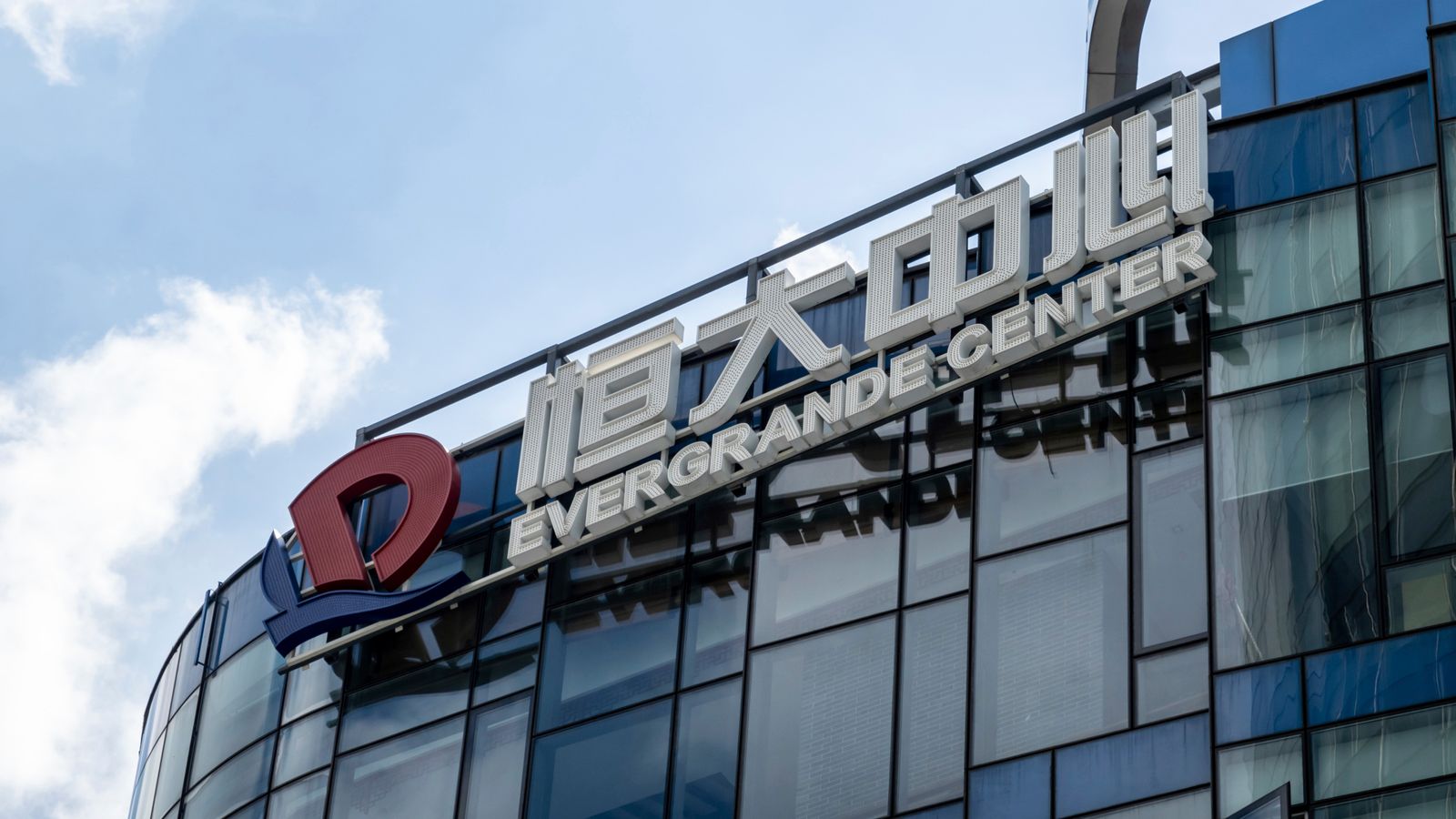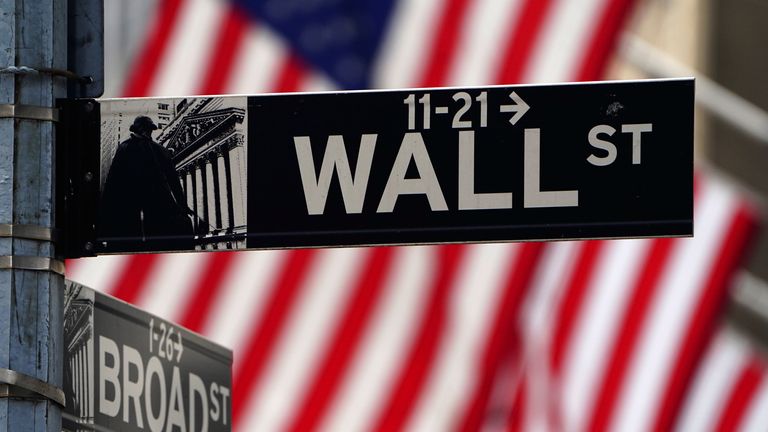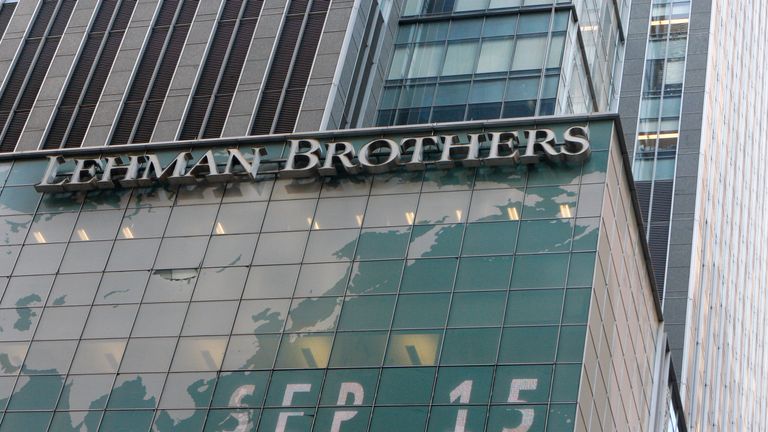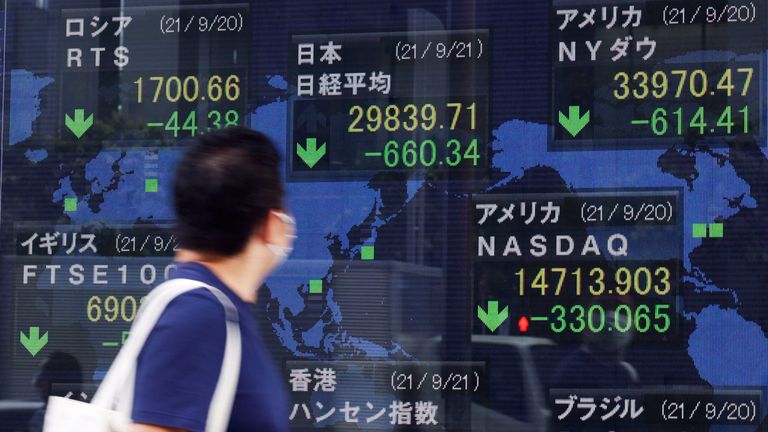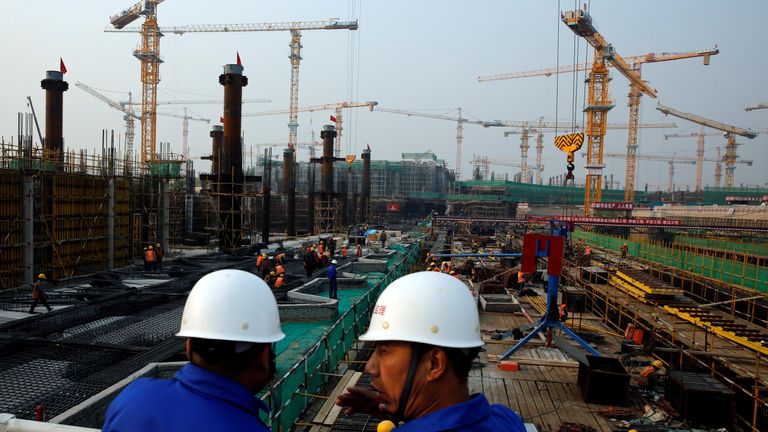Markets are uneasy about debt-laden Evergrande – but this is no Lehman moment
It is not clear precisely how much Evergrande, the Chinese property company, owes its creditors.
Most authoritative accounts, though, suggest it has total liabilities of as much as $310bn – making it the world’s most indebted company.
That bewildering sum is more than the combined national outputs of Bulgaria, Croatia, Lithuania, Slovenia and Estonia.
And it is why global stock markets have been so jittery this week.
The S&P500, America’s most important stock index, came rattling back on Monday to a level last seen in mid-July after having fallen by more than 3% at one point.
Both it and the Nasdaq are currently on course for their worst months in a year.
In Europe, the Dax in Germany fell at one point on Monday to a level last seen in May while the FTSE 100 fell at one point to its lowest level since July.
It is worth noting that there has since been a modest bounce back – but there is still a good deal of unease.
Contagion, a word that became commonplace during the financial crisis, is being discussed again.
A collapse of Evergrande, it has been suggested, would have a knock-on effect on insurers and banks with exposure to the company.
An estimated 128 banks have lent money to Evergrande and so have some 121 non-bank institutions such as asset managers and insurers.
The contagion, it has been suggested, would also trigger other corporate defaults and particularly in China’s debt-laden property sector because lenders wounded by a collapse might have to call in loans or, at the very least, would impose more onerous borrowing terms on other developers seeking to raise money.
Some of the more excitable headline writers have even drawn comparisons with Lehman Brothers, the failed Wall Street banking giant, whose collapse in September 2008 marked the darkest moment of the global financial crisis.
It’s easy to see why the comparison is being made.
The collapse of Lehmans prompted a credit crunch that triggered huge losses across the banking sector and, later, a shortage of credit to businesses in other sectors right around the world.
It is even in the same month, September, a factor that unnerves superstitious market participants.
Yet it is easy to over-do the pessimism and there are plenty of people prepared to argue this is not a Lehmans moment.
The most obvious point to make is that the world now knows the consequences of letting an institution like Lehmans go bust.
We know from the Lehmans collapse what happens when an institution that is “too big to fail”, in the terminology, is allowed to fail.
The expectation is that the Chinese authorities will intervene to prevent Evergrande from being declared bankrupt.
That will not be enough to rescue Evergrande’s shareholders – who have seen the company’s shares fall by 85% since the beginning of the year – from being wiped out.
But the authorities could still lean on Evergrande’s creditors to continue lending to it, or to extend deadlines for interest payments, while the company seeks to raise enough money from asset sales to save itself from total collapse.
There are a number of other arguments for this not being a Chinese Lehmans moment, most effectively spelled out by Ajay Rajadhyaksha, a strategist at Barclays in New York.
He told clients on Monday night such a comparison was “not even close, in our opinion”.
“Yes, Evergrande is a large property firm,” Mr Rajadhyaksha wrote.
“And yes, there could (probably will) be spill-over effects on China’s property sector, with economic implications.
“And yes, it comes at a time when China’s growth has already started to disappoint.
“But a true ‘Lehman moment’ is a crisis of a very different magnitude.
“One would need to see a lenders’ strike across large parts of the financial system, a sharp increase in credit distress away from the real-estate sector, and banks being unwilling to face each other in the interbank funding market.
“And with all that, we would also need to see massive policy mistakes on the part of Chinese authorities.
“In our view, the conditions are simply not in place for even a large default to be China’s Lehman moment.”
He makes a number of points.
The first is based on an analysis of Evergrande’s liabilities.
While the company owes a total of more than $300bn, only a small proportion of it is in financial instruments.
The majority of it is in accounts payables and acceptance bills, in other words, money that Evergrande owes its suppliers.
Just 11.4% of its liabilities, he notes, is in bank debt.
Mr Rajadhyaksha added: “Even in a chaotic default with these loans ending up with little recovery, the numbers are simply not large enough to tip the scale.
“China’s banking system has as much as $40-45trn in assets, and total loans are over $30trn… surprising as it may sound, Evergrande by itself doesn’t have enough liabilities to pose a risk to China’s financial system.”
The second point is the housing market.
The Barclays man points out that the Chinese authorities have for many months been talking down the housing market and urging the banks to raise mortgage rates, a sharp contrast with the US in the run-up to the crisis, when people with dubious credit records were encouraged to buy homes and the supply of credit was not a problem.
His third point is the nature of how financial crises evolve.
Lehmans collapsed because banks stopped lending to it in wholesale markets and then became nervous about lending to each other.
Mr Rajadhyaksha adds: “China’s situation is very different.
“Not only are the property sectors’ linkages to the financial system not on the same scale as a large investment bank, but the debt capital markets are not the only, or even the primary, means of funding.
“The country is, to a large extent, a command-and-control economy.
“In an extreme scenario, even if capital markets are shut to all Chinese property firms (which is not occurring and is only a tail risk at this point), regulators could direct banks to lend to such firms, keeping them afloat and providing time for an extended ‘work-out’ if needed.
“The only way to get a widespread lenders’ strike in a strategically important part of the economy would be if there were a policy mistake, where the authorities allow the chips to fall where they may (perhaps to impose market discipline), regardless of the systemic implications.
“And we think that’s very unlikely.”
That is not to say the Evergrande situation is not a huge challenge to the Chinese authorities. It is.
However, with Evergrande having pre-sold an estimated 1.4m apartments that it has yet to complete, the chances must be that they will act to avoid alienating wide swathes of the public.
For all the latest business News Click Here

